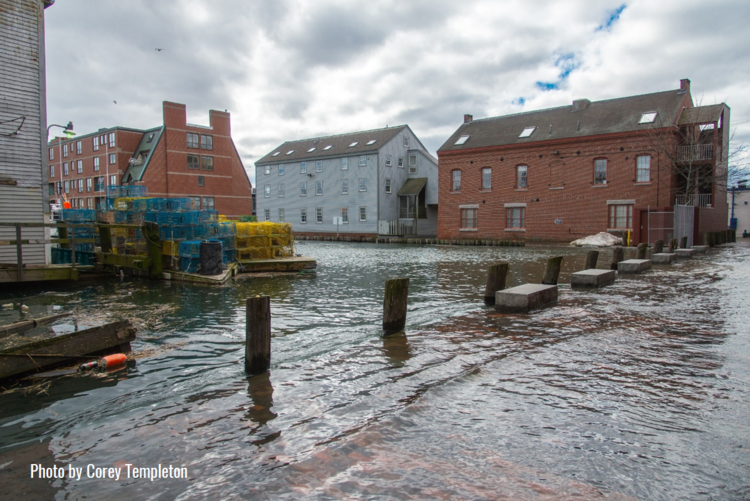Maine’s Climate Action Plan
December 2020 UPDATE:
The final Climate Action Plan, Maine Won’t Wait, was released in early December. Governor Mills welcomed the plan and announced actions her Administration will take to protect Maine people and communities and spur economic growth in the fight against climate change.
“From rising seas to warming temperatures to deadly natural disasters, humanity has been warned for generations that our climate is changing in profound and dangerous ways and yet not enough has been done to slow or stop it. Climate change will have profound implications for our state, our economy, and our people – both present and future. This is why Maine won’t wait, and can’t wait, to take action to ensure the resiliency of our communities, to create clean energy jobs and build a clean energy economy, and to support Maine families’ transition away from expensive, harmful fossil fuels to homegrown, renewable energy. I look forward to working with community leaders across our state to advance these goals and preserve and protect this place we all call home.” Maine Governor Janet Mills
The Issue
On June 26, 2019, the Governor and Legislature created the Maine Climate Council, an assembly of scientists, industry leaders, bipartisan local and state officials, and engaged citizens to develop a four-year plan to put Maine on a trajectory to reduce emissions by 45% by 2030 and at least 80% by 2050. By Executive Order of Gov. Mills, the state must also achieve carbon neutrality by 2045.
Six working groups spent months developing their climate mitigation and adaptation strategies for the council. Their recommendations were presented to the Maine Climate Council in June 2020. The Maine Climate Council sought public comment on the recommendations during the summer and fall, then prepared the report for release in early December 2020.
Threat
The preservation community is deeply concerned about the impact of climate change on our historic coastal and riverine communities. Landmarks believes immediate action is necessary to reduce greenhouse gases and to make our communities more resilient. Many of Greater Portland’s most treasured archaeological sites and historic buildings sit along the coast and its intersecting rivers and streams—areas at high risk because of rising sea levels. Immediate action is necessary to lessen the ongoing and escalating damage to local historic landmarks and sites.
Our Position
We know that our historic buildings, archaeological resources, and communities are at risk. While we work to document resources at risk and educate potentially impacted communities and property owners on best practices in hazard mitigation for historic resources, we are also engaged in local and statewide planning efforts.
Historic preservation and the conservation of existing resources are key to developing a strategy of resiliency, risk management and adaptation. Our historic downtowns, agricultural landscapes, and our working waterfronts are resource assets that should be considered as Maine’s communities implement Maine’s Climate Action Plan.
We cannot build our way out of this crisis. Re-use matters. In the 1970s Maine became a leader by enacting the “Bottle Bill” and changing the culture of recycling in Maine. We believe that Maine should build upon its assets and lead yet again, with a plan that includes a preference for the conservation of buildings and reusable building materials over new construction and replacement building materials. Many of these newer materials have short life spans and are produced at a high environmental cost. This would be a significant step forward towards achieving Maine’s climate goals. In Portland, Oregon a study concluded that if the 1% of their building stock expected to be demolished in the next 10 years was instead retrofitted and reused, 15% of their total CO2 reduction targets could be met.
The Maine Historic Preservation Commission and other preservation organizations are important resources for technical assistance to municipalities. Our organizations are able to help local communities, regional planning associations, and property owners identify vulnerable structures and offer guidance on land use and adaptation strategies. We can also help guide stakeholders as they make difficult decisions to establish benchmarks for when to adapt and when to retreat that will have an impact on their community’s culture, historic properties, and heritage industries.
Watch our 8/25/2020 conversation with members of the Maine Climate Council:
FAQ
What you need to know about Historic Preservation and Climate Change
Press
Pingree, Golden unveil earmark requests for federal funding of 20 Maine projects Portland Press Herald
Portland and South Portland pledge partnership to combat climate change Portland Press Herald
Climate Action Plan: Maine's Climate Council Drafts Strategies to Address Climate Change Maine Public
Our View: Climate Council would guide necessary changes Portland Press Herald
Staying Above Water Greater Portland Landmarks
Quick Links
What You Can Do
Join our mailing list to stay informed about advocacy, educational programs, and upcoming events.
Support the advocacy efforts of Greater Portland Landmarks.

